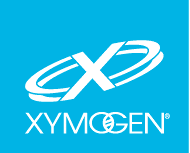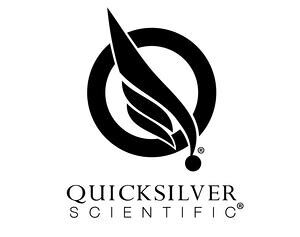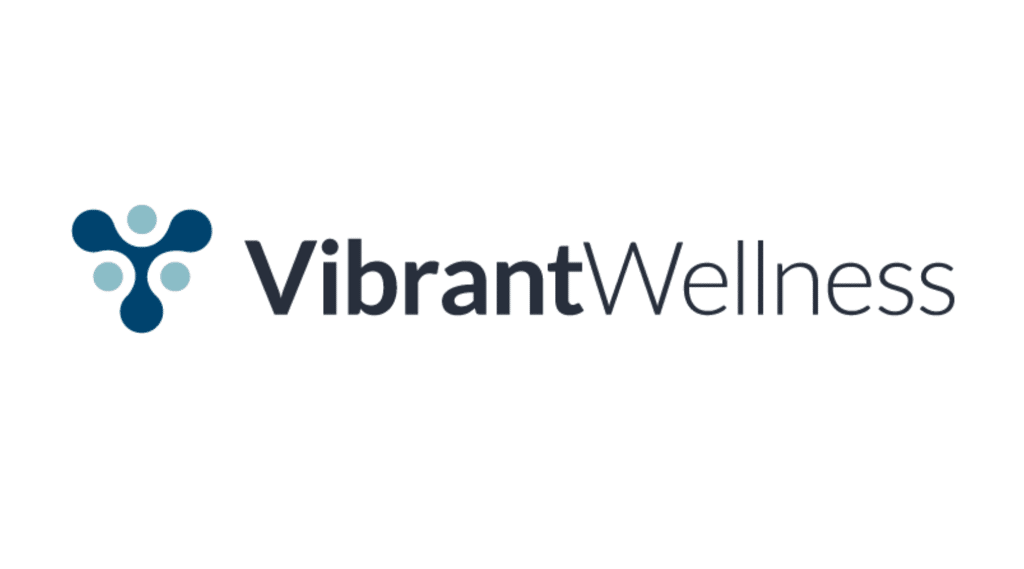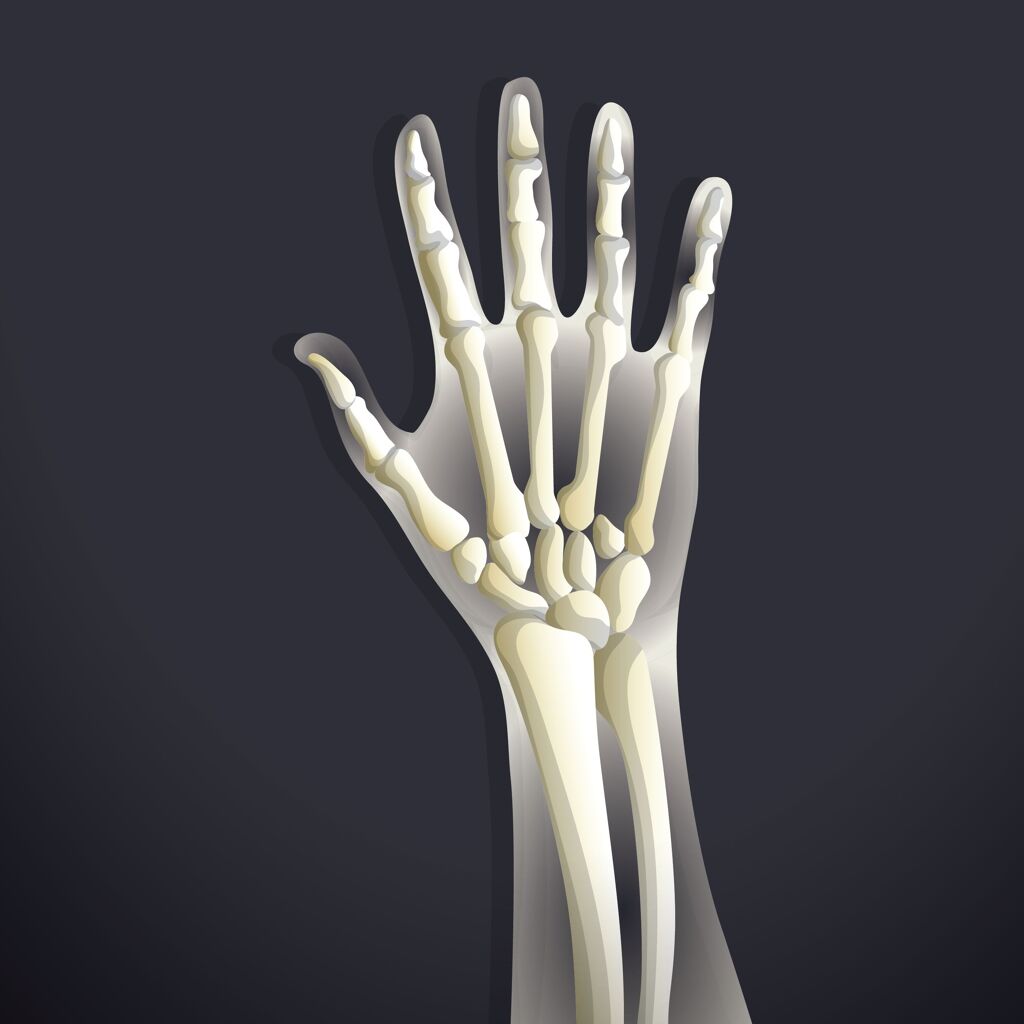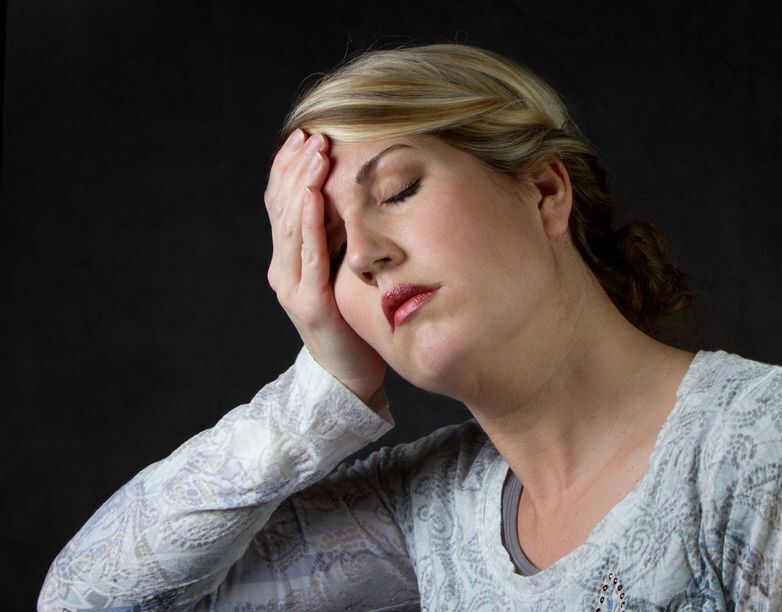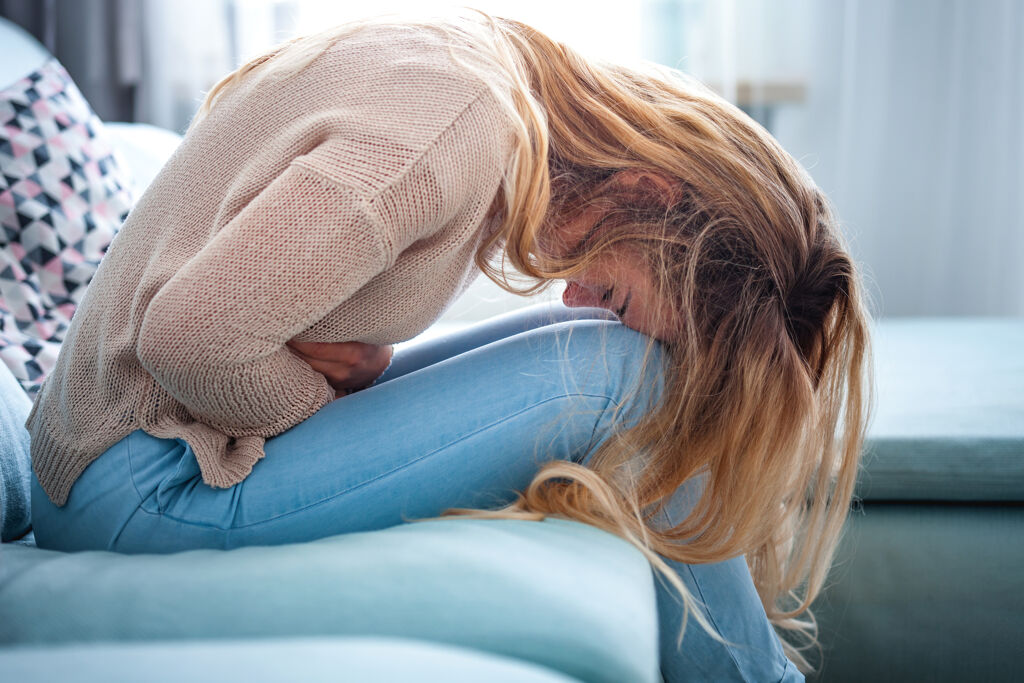How To Minimize Toxin Exposure And Detoxify

Estimates suggest that we are exposed to approximately 700,000 different toxic chemicals on a daily basis (The World Counts, 2022). Toxins can have extreme consequences for health, both in the short and long term.
In this blog, you will learn:
- How the body deals with toxins & how the detoxification process works
- How you can minimize your exposure to toxins
- How you can boost your body’s detoxification process through diet and lifestyle
In our last blog, we wrote about toxins and their impact on mental health. Toxins are a significant factor in mental illness and contribute to conditions like depression, anxiety, bipolar disorder, brain fog, ADHD, suicide, learning and developmental problems, memory problems and memory loss, temper outbursts and psychotic behavior.
In addition to mental health problems, toxins cause other problems. Toxins can cause a systemic issue in the body through the different organ systems. They can potentially be a factor in any disease process. Toxins can contribute to:
- Asthma & Bronchitis
- Allergies
- Cancer
- Leukemia
- Parkinsons
- Organ damage
- Autoimmune diseases
- Poor immunity
- Fertility issues
- Chronic inflammation
- Menstrual cycle irregularity
- Cancer and other serious diseases or health conditions
How Does the Body React to Toxins?
The body has many ways to defend itself against toxins.
- The gut acts as a physical barrier. The first line of defense against toxins and pollutants is the mucous linings of the body. Mucous is a protective barrier. It lines the mouth, sinuses, lungs and gut. The purpose is to keep external substances outside of the body and outside of blood circulation.
- The skin is a physical barrier. It also sweats. Sweating is mainly done to control body temperature. But it also helps detoxification. We sweat out toxins in sweat. This is why saunas are particularly healthy.
- The kidneys and liver filter and metabolize toxins. The main function of the liver, kidneys and urinary system is to get toxins out of the body. The liver and kidneys package up toxins for release from the body through urine and stool. These are the main ways to get rid of toxic substances. This is why it’s so important to have daily bowel movements so that toxins can be excreted on a daily basis.
- The immune system is involved in detoxification. Lymph nodes, bone marrow, the thymus and white blood cells fight against harmful foreign substances, abnormal cells, bacteria and viruses. White blood cells are immune cells that recognize and destroy harmful foreign substances.
- Inflammation is part of this process. The purpose of inflammation is to destroy harmful substances and heal and repair. When inflammation is acute and subsides after healing the damage, it is healthy inflammation. But inflammation can become chronic and systemic. If it becomes chronic inflammation, this is when the immune system can overreact, organs can get damaged and health issues start to take hold. For example, this is when autoimmunity may occur.
What Does the Body Do with Toxins?
Toxins are meant to exit the body through urine, stool, sweat and even the breath. But some toxins cannot be excreted from the body. The body has never seen certain chemical molecules before and frankly, it doesn’t know what to do with them. Toxins are typically fat-soluble so the body deposits and stores them in fat tissue, where they accumulate. Storing toxins in fatty tissue is a protective measure so that these toxins don’t circulate throughout the body and make you sick.
Fatty adipose tissue that collects around the abdomen and thighs is especially prone to storing toxins. This explains why a person may have difficulty losing weight. The body holds onto the weight. It resists releasing these harmful toxins from the fat and letting them out into circulation in the bloodstream. This is also why, once a person starts to lose weight, particularly in the abdomen, they may begin to feel unwell. The toxins are being released into circulation in the bloodstream and can cause symptoms like fatigue, headache and others.
What are the Symptoms of Toxic Overload?
After being exposed to a certain amount of toxins, the body will eventually hit its limit and toxic overload occurs. It’s like water dripping into a bucket. At some point, the last drop falls and the bucket is full to overflowing. This can happen to the body with toxins.
Toxic overload causes symptoms that can make you feel ill, such as headache or tiredness. As toxins accumulate and toxic load increases, more extreme symptoms can occur.
- Unexplained fatigue
- Digestive issues, bloating or poor gastro-intestinal elimination
- Blemishes, irritated skin or eczema
- Allergies
- Difficulty sleeping
- Repeated infections which indicate poor immunity
- Puffy eyes
- Difficulty paying attention, memory problems or brain fog
- Irritability, frequent mood upsets or swings, feeling depressed, unmotivated and lacking energy and enthusiasm for life
- With severe toxic overload, the risk of diseases, like cancer, increases
Is it Toxic Overload?
Different health conditions or diseases can also cause the problems listed above. To diagnose toxin overload, we need to look at the full symptom picture, general habits and lifestyle of the patient. Blood and urine tests can be very helpful to understand what is going on inside the body.
How is Toxic Overload Treated?
Even if you are experiencing toxic overload, the good news is that the body is able to detoxify itself. Recovery from toxin exposure does not typically require drastic or invasive procedures. You just need to stop taking new toxins in and to support the body with diet and lifestyle changes to enhance the natural detoxification process.
To Read About Blog Topic, Scroll Down
Want To Work With Our Clinic?
Do you have a chronic or mystery illness that no one has been able to help you with? Are you simply wanting to re-connect with a healthier version of yourself? It’s Time To Finally Feel Better!
How can you Reduce your Toxic Load & Detox?
To reduce and eliminate toxic load, it is necessary to focus on supporting detoxification. Firstly, identify the source of the toxic exposure if possible. Then avoid exposure to that toxin and exposure to all toxins, as best as possible. Support the body’s detoxification process as best as possible, through healthy diet and lifestyle habits.
How to Detox through Diet
Start with Food – Food to avoid that contain toxins include:
- All processed & ultra-processed foods: These products likely contain additives, colorings, chemicals, trans fats, excitotoxins, excess added sugars, artificial sugars and poor-quality salt.
- GMO foods like corn, soy, sugar beet, canola, squash, potato, papaya, apple, cotton.
- Commonly allergenic foods such as gluten/ wheat, dairy products, eggs, nuts, nightshades.
- Canned foods as toxins may be used in the canning process.
- Highly processed vegetable oils for cooking, such as corn, canola, safflower, sunflower, peanut, cottonseed oils. These are all inflammatory. Cook instead with anti-inflammatory fats like avocado oil, lard, butter or coconut oil. Use olive oil only to medium heat.
- Don’t eat greasy, fatty, fried foods.
- Soda is processed and full of chemicals and sugar so drink water instead.
- Alcohol is a toxin that can damage the liver. This is despite all the positive talk about antioxidant polyphenols such as resveratrol. Eat the brightly colored vegetables and fruits instead for antioxidant support that does not damage the liver.
- Refined and starchy carbohydrates (breads, pasta, cakes and baked goods) are not supportive of the liver so should be avoided.
Healthy detoxifying foods to focus on include:
- Organic vegetables, fruits and fresh herbs. Brightly colored whole foods are high in nutrients.
- Only eat organic vegetables, fruits and other foods to avoid toxic pesticides and chemicals. If budget is an issue with buying 100% organic, then follow the Clean 15 Dirty Dozen from the Environmental Working Group (EWG). See the latest Clean 15 list here and the latest Dirty Dozen list here.
- Eat bitter foods, which support the liver and help to detox. They also support good digestion by releasing digestive enzymes and increasing bile flow. Bitter foods include dandelion greens, nettle, arugula, dark green leafy vegetables (kale, spinach, collard greens, beet greens), cruciferous (broccoli, Brussels sprouts, cabbage, kale, radishes, arugula), beetroot, parsley, cilantro, turmeric, wheatgrass and milk thistle.
- Organic fresh coffee is a bitter food. In moderation, assuming you tolerate caffeine, coffee can be good for the liver. Hurrah!
- Eat fiber. Fiber helps to keep digestion regular and avoid constipation. This is important as stool is key for eliminating toxins from the body. Aim for 25–35 grams of fiber per day. Use Cronometer.com or other nutrition apps to track it. High fiber foods include vegetables, fruits, seeds, especially chia and flaxseeds, oatmeal.
- Other detox-supportive foods are green tea, garlic and ancient gluten-free whole grains like quinoa, oats & amaranth.
- Eat foods high in Omega-3, like fish and walnuts. Eat seafood low in PCB and mercury, such as wild Alaska salmon. Avoid tuna as it contains mercury. Avoid farmed fish which are treated with chemicals and other toxins.
- Use glass to cook and store food. Avoid storing food in plastic, which can leach into the food. Cook with cast iron, glass or stainless-steel. Don’t microwave food in plastic containers as chemicals from the plastic and the microwaving process get into the food.
The Importance of Water
- Water helps bring nutrients to cells, excrete toxins and protect joints and organs. It affects cellular function, energy levels, brain function and body temperature. It is needed in the detoxification process to cleanse organs.
- Drink warm water. Warm water enlarges the blood vessels to promote better blood circulation. As oxygen reaches different parts of the body, the organs function better.
- Add taste to water with fresh mint leaves, cucumber, lemon, ginger, orange slices, fresh or frozen berries.
- Drink warm water with lemon in the morning, on an empty stomach. This combination supports the liver and gallbladder, flushes toxins from the body and helps digestion.
- Tap water contains toxins. Use a good water filter to reduce pollutants found in tap water.
Detoxifying Supplements & Binders – Certain nutrients are needed in the detoxification process of the body. If we supplement these nutrients, it helps the body to detox.
- A particularly good one for detox is glutathione. Glutathione prevents cellular damage by repairing cells affected by pollution, stress, reactive oxygen species, free radicals, heavy metals and other toxic substances.
- Another less expensive option is to take a precursor to glutathione, which is NAC or N-Acetyl Cysteine, instead.
- Vitamin C can increase the excretion of toxins. The body cannot make Vitamin C. We must get it primarily from fruits and vegetables in the diet. Vitamin C is important for detoxification, tissue repair, immune function and neurotransmitter signaling.
Binders are supplements that bind to and eliminate toxins from the body. They support the detox process by decreasing toxin levels. There are different types of binders. Some are better than others at removing specific types of toxins.
Examples of binders are chlorella, spirulina, activated charcoal, bentonite clay, zeolite, fruit pectin, silica, probiotics and chitosan. There are also many blended formulas which contain a variety of binders.
The quality and sourcing of the binder is very important. Algae, like chlorella or spirulina, clays and charcoal can unfortunately be contaminated with toxins themselves. See your Functional Medicine practitioner for help buying a high-quality binder.
Binders can bind to nutrients so they should be taken away from food. Take them at least 30 minutes before or 2 hours after eating or taking supplements or medications.
Gut Health & Detoxification – The gut helps in the detox process because stool, or bowel movements, are one key way to eliminate toxins from the body. You should be having a bowel movement at least once a day to keep things moving well and remove toxins on a timely basis.
Constipation keeps the toxins in. This allows them to build up internally and cause damage. To avoid constipation, increase fiber in the diet, exercise or move daily, drink enough water and take magnesium if necessary.
Certain high fiber foods help with constipation.
- Chia seeds are high fiber. Soak 1 tsp of chia seeds in water overnight and eat them at breakfast. Make chia pudding for breakfast the next day. Chia seeds absorb water and swell up. Eat chia seeds that have already been soaked in liquid. Don’t eat dry chia seeds by themselves as they might swell up once they are in the esophagus.
- Flaxseeds are also high fiber. Soak a tsp of flaxseeds overnight for breakfast the next day. Add flaxseeds to cereals, smoothies, yogurt or salads. You can eat up to 2 – 4 tablespoons per day but work up to that gradually so that your digestive system adjusts to the high fiber content.
- Prunes/prune juice have a lot of insoluble fiber and sorbitol, which is a natural laxative. Try 1/2 to 1 cup of prune juice in the morning to get things moving. Or eat dried figs or prunes. 1 – 2 servings per day can increase fiber intake and resolve constipation.
Once your bowels are moving daily, there are other things to do to support gut health for detoxification.
- Probiotic supplements populate the gut with good bacteria and keep the bad bacteria under control. They also act as a binder. In conjunction with probiotic supplements, eat fermented foods, which contain live good gut bacteria. Fermented foods are kombucha, yogurt, raw cheeses, sauerkraut, pickles, miso, apple cider vinegar, tempeh, natto and kimchi.
- Apple cider vinegar has antimicrobial properties that can kill harmful bacteria and support detoxification. It is effective for weight loss and reducing bloating and gas.
Which Lifestyle Habits can Support Detoxification?
There are some new lifestyle habits to adopt to decrease toxins. This mainly involves reducing toxin exposure through your personal care/ cosmetic products and household cleaning products. This ensures you are not simply increasing toxic load again with products containing toxic ingredients.
Natural Personal Care / Cosmetic Products – Be very selective with the personal care and cosmetic products you choose. Look for ones that use natural ingredients and avoid toxic ingredients. Use natural products, free from parabens, phthalates, sulfates, lead, fragrances and other toxic ingredients.
Check out the EWG’s skin deep database. This rates different personal care products and how safe a product is or not. Go through your moisturizers, soaps, body wash, shampoos, hair dyes, perfumes, deodorant, toothpaste, makeup and everything else you put on your body.
Natural Household Cleaning Products – Household cleaning products are another huge source of toxins, as they contain chemical and other toxic ingredients. A first step is to simply reduce the number of household cleaners you use. Baking soda and vinegar can be very effective for cleaning. If you need an actual product, avoid the mainstream brands and go for one of the green non-toxic alternatives.
- Avoid artificial fragrances, air fresheners and other harsh products that contain toxic ingredients. Don’t use stain repellants on clothing, bedding or upholstery. Scented candles can contain harmful chemicals. Go to the EWG guide online and check how your products rate.
- Use a non-toxic laundry detergent, dishwasher soap, etc.
- Take your shoes off when you come into the house to minimize the toxins you bring in from the outside.
- House plants detoxify the air. Spider plants, aloe vera and mother in law’s tongue are especially detoxifying. And they look nice too!
Breathing Techniques – A regular practice of deep breathing helps to release toxins through the lungs. Yoga can help to focus on the breath. Or try Wim Hof breathing. This method has amazing health benefits, including decreasing inflammation and releasing toxins. There are many free resources on the Wim Hof technique and you can start here.
Daily Movement & Exercise – Be sure to exercise and engage in some form of movement, ideally, on a daily basis. Exercising to the point of sweating helps to excrete toxins through the sweat. Exercise also has endless other benefits for health.
Sweat it Out – Sweating is another way to release toxins through the skin. Sauna, both infra-red and classic style, have health benefits and will get you sweating.
If you don’t have access to a sauna, take a detox bath at home. It can still help to reduce toxins. Add Epsom salts to decrease inflammation and draw toxins from the skin. Including apple cider vinegar helps add probiotics to your skin. Do this a few days a week to enhance general health, not to mention relaxation!
Be in Nature & Detox from Technology – Get outside as much as possible. Get out in nature for a walk in the park or a hike in the mountains. Even sitting outside to eat lunch and not at your desk can make a difference.
Take time off from screens and electronics. Try to avoid them for the last two hours before going to bed. The lights from electronic devices prevent the production of melatonin, the sleep hormone. A melatonin deficiency can contribute to sleep issues, difficulty with detoxification and a compromised immune system.
Sleep – Sleep helps detoxify the body. The brain helps to flush out toxins when asleep so it is important to get the recommended 7-9 hours of sleep per night.
Stress Management – Reduce stress wherever possible in your life. Try to take a detox break from stress from time to time. Then learn to manage stress, because we can never completely avoid it.
Find a stress management technique that works for you. Focus on activities you enjoy to relieve stress and increase feeling fulfillment in your life.
Things to try are meditation, guided meditation, yoga, yoga nidra, breathing exercises as mentioned above. Tai chi, going to the sauna, spending time in nature, listening to your favorite music or reading a good book are all de-stressing. Practicing gratitude reduces stress. Keep a gratitude journal to help stay focused on the positive things in life. Playing with your kids, grandkids, pets, or all three counts too! Simply find a way to forget about any stressors in your life and be in the present moment.
Summary
- We are exposed to thousands of toxins on a daily basis. They can impact our mental, and general, health in both small and profound ways.
- The body has natural ways to combat toxins and detoxify, but these can get overwhelmed by the amount of toxins we encounter in our modern lives.
- Certain symptoms, like unexplained fatigue, allergies, skin issues, sleep problems, brain fog, mood issues and mental health struggles, may indicate you are experiencing an excessive toxic load.
- We can treat an excessive toxic load by practicing diet & lifestyle habits that encourage detoxification.
- Within our diets, we can avoid toxic foods and focus on detox-supportive foods. We can take supplements like glutathione, vitamin C and binders to support detoxification.
- Lifestyle habits to promote detoxification include supporting gut health, cleaning up your personal care and household cleaning products, breath work, exercise, sweating out the toxins, being in nature, reducing screen time, sleep and stress management.
** Follow us for our next blog on causes of anxiety and solutions **
As always, please get in touch with us. If you or someone you know is struggling with exposure to toxins, unexplained symptoms or mental health struggles, contact our clinic today. We can work on any issue(s) and improve your health. Book a free health evaluation call with us today, to see how we can help you with your concerns. We can answer your questions and help you book an initial consult with one of the functional medicine doctors in our clinic.
Are You Suffering From A Chronic Illness?
Does your current health situation look like this…
- Do you feel that you have tried many things and either nothing works, or the treatment does not hold?
- Have you been told that there is nothing that can be done to reverse your illness and you just need to manage symptoms?
- Does your illness impact your work, your family, your happiness and your social life?
We specialize in finding answers and solutions for complicated chronic illness when people feel like they have tried everything. If this sounds like you, book a free call with us to see if we are the right fit for your health goals.
Dr. Miles has spoken for the following organizations:
